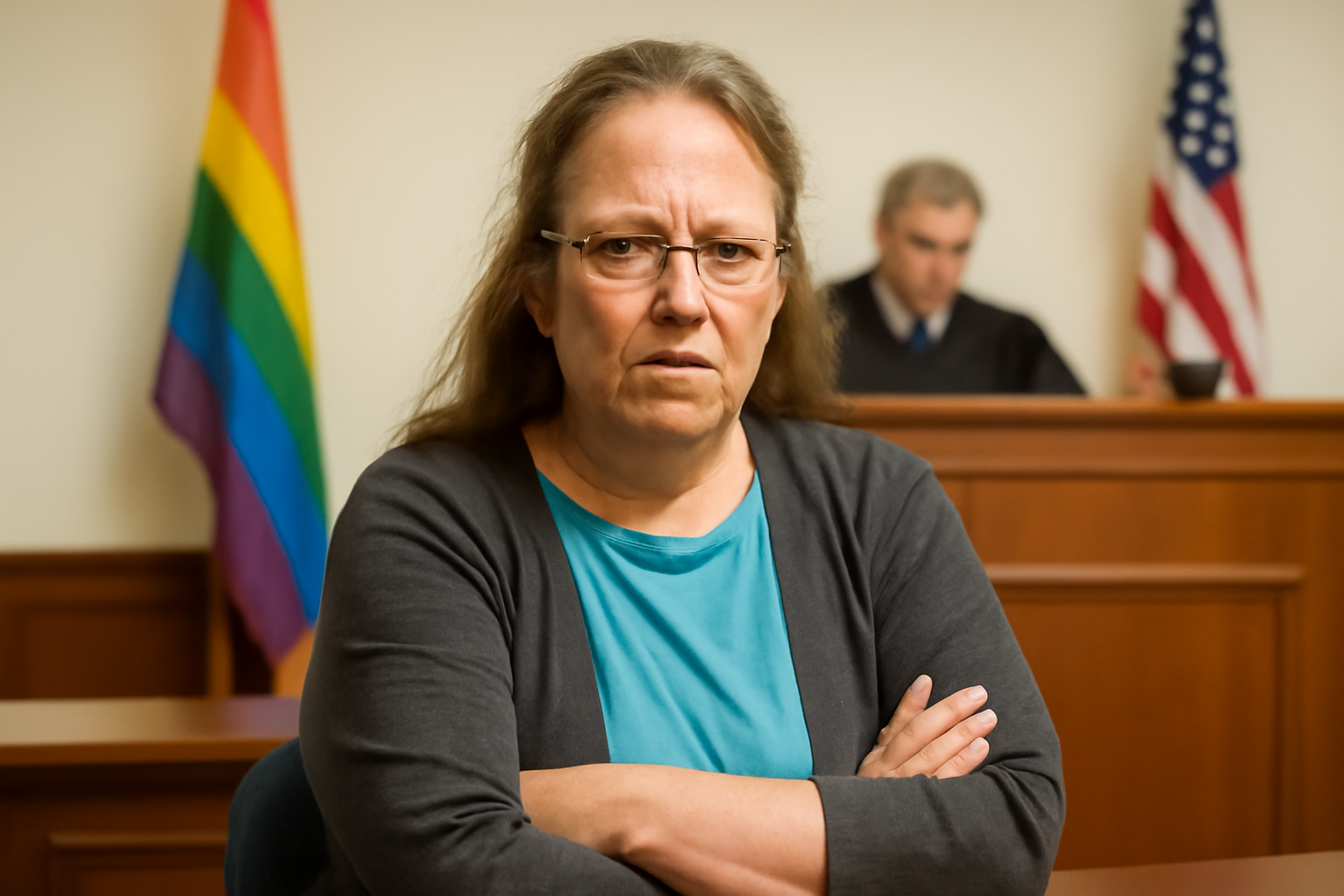
In a continuation of the legal saga surrounding former county clerk Kim Davis, a new chapter unfolds as she faces the possibility of financial liability in a case involving a same-sex couple's marriage license. Davis, who gained national attention in 2015 for refusing to issue marriage licenses to same-sex couples, is once again in the spotlight as court proceedings address the financial repercussions of her actions.
Background on the Case
Kim Davis, the former clerk of Rowan County in Kentucky, made headlines in 2015 when she defied a U.S. Supreme Court ruling by refusing to issue marriage licenses to same-sex couples. This decision, rooted in her personal religious beliefs, led to a federal lawsuit filed by several couples who were denied licenses. Davis's stance not only sparked widespread debate over religious freedom versus legal obligations but also brought attention to the rights of LGBTQ+ individuals seeking to marry.
The case reached a critical point when Davis was jailed for five days for contempt of court, which only intensified public interest and media coverage. During this tumultuous period, the state of Kentucky altered the marriage license format to accommodate clerks with religious objections. Nonetheless, the legal issues for Davis were far from over as the case transitioned from one focused on her actions to the potential financial consequences thereof.
Current Legal Developments
Fast forward to the present day, the legal battle has resurfaced with renewed vigor. The focus now lies on whether Kim Davis should be held personally responsible for the legal fees and damages incurred by the plaintiffs in the original case. The question of accountability and the extent of personal liability for public officials who refuse to perform their duties due to personal beliefs are at the forefront of this renewed legal scrutiny.
The plaintiffs, a same-sex couple who were denied a marriage license, have argued that Davis's refusal to perform her official duties caused them irreparable harm and unnecessary legal expenses. They are seeking compensation not only for the direct impact of being denied a license but also for the broader implications and disruptions it caused in their lives.
Implications for Public Officials
This case raises significant questions about the responsibilities and limits of public officials when their personal beliefs are in conflict with their official duties. Legal experts emphasize the importance of separating personal convictions from public responsibilities, particularly in cases where civil rights are at stake. The outcome of this case could set a precedent for how similar situations are handled in the future, potentially affecting public officials across the nation.
Davis's legal team argues that she should not be personally liable, citing her belief that she was acting within her rights to religious freedom. However, opponents argue that holding public office requires adherence to the law, and personal beliefs cannot justify non-compliance with federal court rulings.
Community Reactions
The case continues to draw reactions from both supporters and critics. Advocates for LGBTQ+ rights view this as an essential step toward affirming the rights of same-sex couples and ensuring public officials uphold their duties regardless of personal beliefs. Conversely, Davis's supporters see this as a challenge to religious freedom, highlighting the ongoing tension between personal convictions and public service obligations.
As the legal proceedings move forward, the eyes of the nation remain on this case, which encapsulates the broader cultural and legal debates over equality, religious freedom, and the role of public officials in a diverse society.
The resolution of this case may not only affect the involved parties but could also influence how similar cases are approached in the future, potentially impacting the balance between personal beliefs and public responsibilities for years to come.
Related Posts
Triumphant Trans Woman Wins Legal Battle and Inspires Others to Stand Up for Their Rights
Breaking new ground: a landmark victory in transgender rights After battling in courtrooms and enduring endless challenges, Diana Portillo, a transgender woman, has secured a monumental victory in her decade-long fight against workplace discrimination. The result? Nearly $1 million awarded in a historic settlement. But this isn't just a win on paper—it represents a powerful precedent in combati [...]
Pride Month in Latin America: Protests and Demands for Equality
**Celebrating Pride and advocating LGBTQ+ rights in Latin America** Pride Month in Latin America was a lively mix where celebration met activism. Communities united, not just throwing a party but making a stand—demanding equality and pushing governments toward better protection and rights recognition. Throughout Latin America, pride events erupted in marches and cultural displays, each with a c [...]
Transgender Erasure Actions Implemented by National Park Service
```html Trump administration's impact on national park service and transgender recognition The Trump administration made notable moves in undermining transgender representation, which included directing agencies like National Park Service not include "T" and "Q" when they refered “LGBTQ” in any official communication. This move seems part a broader plan by this administration aimed at reducin [...]